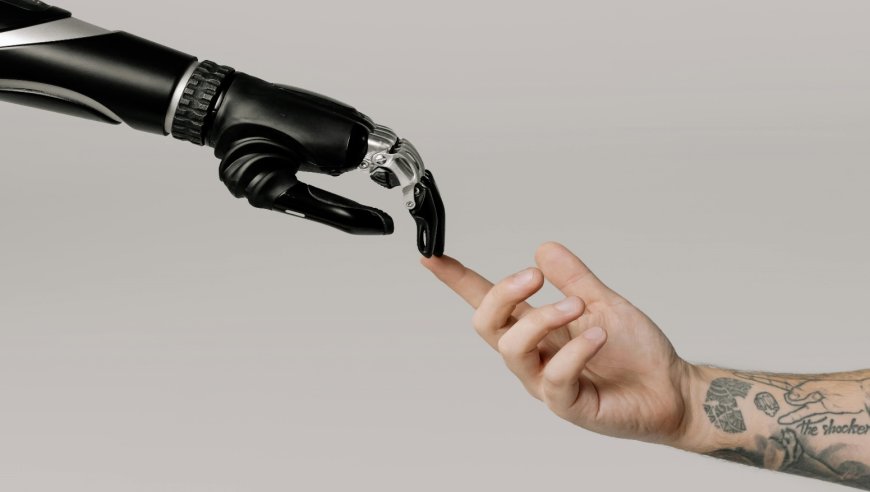The Role of AI in Mental Health improvement

Artificial intelligence (AI) has an effect for mental health advocacy in recent years. AI is becoming more and more crucial in raising awareness, offering support, and boosting access to treatment as we negotiate the complexity of mental health in 2025. Let's investigate future possibilities and how artificial intelligence is changing mental health advocacy.
Increasing Consciousness
Increasing knowledge of mental health concerns is one of the most important ways AI is supporting mental health activism. By means of advanced algorithms and data analysis, artificial intelligence can:
Determine Patterns
To avoid developing mental health trends, artificial intelligence systems can examine enormous volumes of data from social media, news stories, and internet forums. This lets advocacy groups remain ahead of the curve and handle problems as they surface.
For instance, artificial intelligence systems found an increase in online debates on financial stress and how it affects mental health during the recent worldwide economic crisis. This led mental health groups to design focused campaigns tackling these issues.
By customizing mental health messages to groups, artificial intelligence guarantees that material gets to people most likely in need. Through user data and behavior analysis, artificial intelligence can identify the best approaches to present mental health information to several populations.
Using artificial intelligence, a top mental health NGO has tailored its messaging for various age groups. The outcome was a thirty percent rise in involvement above past campaigns. . Fight Stigma in Conflict
Virtual assistants and artificial intelligence-powered chatbots can offer a judgment-free, safe environment where individuals might share mental health issues. This can help to lessen the stigma connected with getting treatment for mental health problems.
Boosting Access to Treatment
Improving access to care is another vital area where artificial intelligence is changing mental health advocacy. Like this:
Virtual Help Agents
Virtual assistants driven by artificial intelligence can offer those experiencing mental health problems round-the-clock help. When called for, these assistants can provide coping techniques, mindfulness practices, and even crisis intervention.
One well-known mental health app today, for example, has an artificial intelligence assistant helping over 100,000 users control symptoms of anxiety and sadness. Third.
Triage and Consultations
AI systems can route people to the most suitable options and assist triage of mental health issues. This guarantees that individuals get the correct degree of treatment and can greatly lower wait times for mental health treatments.
Support from Teletherapy
By giving therapists real-time observations and recommendations during virtual sessions, artificial intelligence is improving teletherapy offerings. More efficient therapy and better results for patients follow this.
Improving Research and Data Analysis
AI is also transforming mental health research, which shapes advocacy initiatives by itself:
Data Analysis Using Big Data
Processing and analyzing vast amounts of data, artificial intelligence can find trends and insights otherwise invisible. This can result in discoveries about mental health disorders and their therapies.
Predictive Modelling
Analyzing past data allows artificial intelligence to assist in trend and outcome prediction for mental health. This enables advocacy organizations to target their efforts where most needed and distribute resources more wisely.
More focused prevention initiatives result from a recent study using artificial intelligence to forecast suicide risk factors with 80% accuracy, therefore addressing ethical issues.
AI presents many difficulties even if it has significant potential for mental health advocacy:
Issues regarding privacy
Using artificial intelligence in mental health begs serious concerns about data security and privacy. Advocacy organizations have to guarantee ethical use of personal data and protection of it.
Fairness and Deceptions
Sometimes artificial intelligence systems unintentionally reinforce prejudices in their training data. The development of fair and inclusive AI systems that reflect many demographics and experiences is vital.
Human Touch
Although artificial intelligence can offer great assistance, human empathy and connection cannot be replaced. Advocacy for mental health needs to balance using artificial intelligence with keeping the human component of treatment.
The Future of AI in Mental Health Advocacy
Looking ahead, artificial intelligence's influence on mental health advocacy is probably going to get much more pronounced:
Predictive Actions
Early intervention and prevention will be made possible if artificial intelligence can soon forecast mental health crises before they start.
Global Expansion
As artificial intelligence technology is becoming more widely available, it could provide underprivileged groups all around with mental health care.
Policy Influence
AI-driven insights could guide mental health policy and laws, therefore guiding more sensible and evidence-based methods of mental health treatment.
A major advance in our attempts to solve mental health issues is the inclusion of artificial intelligence in advocacy for mental health. Leveraging AI's ability to increase awareness, improve access to care, and improve research can help us to develop an environment that supports and understands people experiencing mental health problems.
As we welcome these technical developments, though, we must keep aware of the ethical issues and possible constraints on artificial intelligence. Mental health advocacy's future is in striking the ideal mix between the indispensable human components of compassion and understanding and creative artificial intelligence solutions.
It is obvious that artificial intelligence will always be very important in determining the terrain of mental health campaigning as we proceed. Through responsible and deliberate use of its power, we can help to create a future in which mental health support is more easily available, efficient, and catered to personal needs than it has ever been.
What's Your Reaction?
 Like
0
Like
0
 Dislike
0
Dislike
0
 Love
0
Love
0
 Funny
0
Funny
0
 Angry
0
Angry
0
 Sad
0
Sad
0
 Wow
0
Wow
0


































